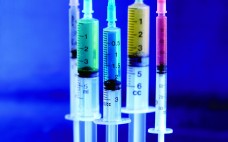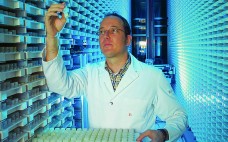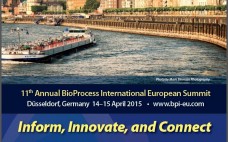High costs and long timelines for biopharmaceutical development are cause for reflecting on how best to allocate resources from the earliest discovery stage through critical go–no-go junctures. With inputs ranging from science, engineering, and economics, the coined term developability becomes the synthesis of answers to such questions as How well does the target represent a disease state? Does manipulating that state bring about improvement? Does the molecule behave as expected in living systems? What can be done about the emergence of independent safety, toxicology, and/or immunogenicity warning signs? Can the molecule…
Special Reports
Special Report: A World of Difference — Biosimilars and Biobetters Offer Unique Benefits — and Risks
by John Otrompke, with Cheryl Scott and S. Anne Montgomery When the United States Food and Drug Administration (FDA) approved the country’s first ever biosimilar on 6 March 2015, it had been a long time coming. After all, the European Union had approved the first biosimilar in 2006, and a number of others have followed in Europe since then. Still, the approval of biosimilar filgrastim, a recombinant colony-stimulating factor used to offset the complications of chemotherapy, was a welcome step…
ISCT Special Report: Advancing Cell Therapy Manufacturing at the 2015 Annual Meeting
The International Society for Cellular Therapy (ISCT) will host its 21st Annual Meeting at Caesars Palace Hotel and Convention Center, Las Vegas, NV, 27–30 May 2015. More than 1,200 industry and regulatory professionals, clinicians, scientists, and laboratory professionals are expected to attend. The program covers six plenary sessions, six workshops, three technical sessions, and more than 20 total track sessions covering such topics as advances in cell therapy research, commercialization strategies, quality and operations, and regulatory issues. BPI spoke with…
Special Report on Product Stability Testing: Developing Methods for New Biologics and Emerging Markets
Stability testing is a vital part of product development and is conducted throughout a product’s life cycle (Figure 1). Stability is part of a biotherapeutic’s quality target product profile, and results help analysts understand how critical quality attributes (CQAs) of both drug substances and products are influenced under specific conditions of temperature, relative humidity (RH), light, storage, pH, and other factors. Manufacturers conduct stability tests to determine degradation pathways and establish shelf lives and storage conditions of their products, for…
QBD Manufacturing Strategies: The CMC Strategy Forum Series, Part 2
The CMC Strategy Forums provide a venue for biopharmaceutical product discussion. They focus on relevant chemistry, manufacturing, and controls (CMC) issues throughout the life cycle of a therapeutic and thereby foster collaborative technical and regulatory interaction. Forum chairs share information with regulatory agencies to help them merge good scientific and regulatory practices. Outcomes of the forum meetings are published in BioProcess International and on the CASSS website. This process is meant to help ensure that biopharmaceutical products manufactured with advancing…
New Paradigms for Process Validation: A Practical Approach
Both the United States and the European Union offer guidance on a life-cycle approach to process validation. This goes beyond the traditional three to five lots run at the center point of proposed ranges for operating parameters. New approaches leverage product design and process development information. They facilitate adapting the QbD paradigm to allow for a science- and risk-based selection of critical process parameters, key process indicators, and appropriate specification criteria. The number of runs for process performance qualification (PPQ)…
Raw Material Control Strategies for Bioprocesses
The 15th WCBP CMC Strategy Forum, “Raw Material Control Strategies for Bioprocesses,” met on Sunday, 11 January 2009 in San Francisco, CA. This forum considered the design and implementation of control strategies for complex raw materials used in bioprocessing. Discussion focused on key approaches and application of risk assessment tools that can be used to identify and assist in mitigating potential safety and efficacy concerns that can affect the quality of biological products. Two Sessions To fully explore the topic,…
Multiproduct Facility Design and Control for Biologics: Challenges and Considerations
Multiproduct facilities are increasingly integral to corporate biologics network and supply chain strategies. Manufacturing capacity strategies ensuring appropriate facility design and procedural controls to manage the risks of producing multiple products are critical to the successful deployment of commercial and clinical supply plans. A Chemistry, Manufacturing, and Controls (CMC) Strategy forum was held in Bethesda, MD, in August 2011 to highlight various challenges, risks, and control strategies associated with multiproduct facilities. Multiproduct strategies for the manufacture of a variety of…
Drug Products for Biological Medicines: Novel Delivery Devices, Challenging Formulations, and Combination Products
The importance of investing science and technology into drug product development has become evident as different product types, higher protein concentrations, and doses and requirements for improved delivery of biological drug products have increased. The need to give patients larger and more concentrated doses has challenged formulation scientists and driven development of new technologies that can deliver those doses. Delivery devices fall under device regulations and have distinctly different design, development, and validation requirements from those of protein drug products…
Special Report – 11th Annual BioProcess International European Summit
Now in its 11th year, the BioProcess International European Summit will host more than 400 bioprocessing professionals from adademia and industry. Five major streams, seven keynotes, poster presentations, and an exhibition hall will take place 14–15 April at the SwissĂ´tel DĂĽsseldorf Neuss in Germany. Together, these opportunities fulfill the conference’s mission: to be the event where the biopharmaceutical industry connects to share new ideas and innovations across all phases of bioprocess development. In two days, the BPI European Summit will…






